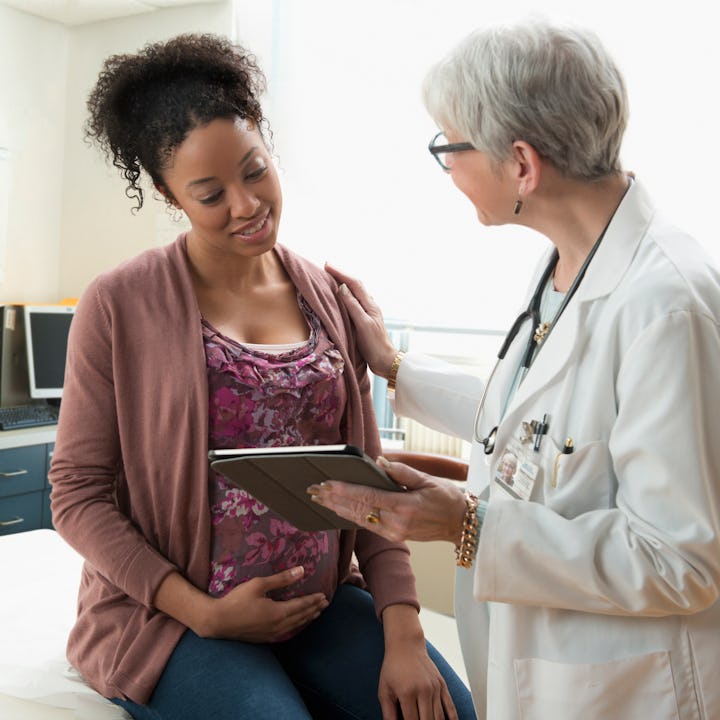FDA Issues Warning About Large Percentage Of False Positives In Certain Prenatal Screening Tests
They emphasized that the tests only show the risk of certain genetic abnormalities and are not diagnostic tools.

On April 19, the Food and Drug Administration (FDA) issued a warning about the accuracy of certain non-invasive prenatal screening tests (NIPS or NIPT). The tests, which are “not authorized, cleared, or approved by the FDA,” have a staggering rate of false positives for some rare conditions with severe complications.
For the most part, these prenatal tests are accurate in predicting certain aspects of a pregnancy, like the sex of the fetus and whether or not they have certain chromosomal deviations that cause more common conditions like Down syndrome.
This is where the accuracy of prediction or risk assessment seemingly ends and the clever use of advertising and semantic loopholes designed to release obligation on the test companies’ parts begin.
As the the market for NIPTs has proven to be quite profitable, companies looking to have a competitive edge have added more and more conditions to their tests. Companies like Labcorp and Myriad Genetics started including screenings for rare conditions, such as Prader-Willi syndrome (which affects 1 in 15,000 births) and DiGeorge syndrome (which affects 1 in 4,000 births).
According to the New York Times, who first published an in-depth investigation on the astonishing number of false positives for these rare diseases, 81% of tests show a false positive for DiGeorge syndrome, which can cause heart defects and delayed language acquisition. For Prader-Willi syndrome, which can lead to seizures and an inability to control overeating, that false positive testing rate jumps to 93%.
Overall, the Times reported that these tests were inaccurate 85% of the time when it came to predicting the development of these rare conditions in the fetus.
These tests are being taken by a third of pregnant women in the U.S. every year.
Non-invasive prenatal tests are meant to determine the risk of certain conditions and are by no means final — they are a jumping off point for further testing. However, when these tests are advertised to give expecting parents “peace of mind” and “total confidence in every result,” it is insinuated that these tests are diagnostic in nature. They are not.
Unfortunately, because of the lack of literacy surrounding these tests, some pregnant people have opted to terminate their pregnancies — which, statistically speaking, were likely completely healthy — based on the screenings alone.
Even if some were to wait and get a second diagnostic test with their OB-GYN, it would have to be further along in the pregnancy. In many states, abortion is illegal at this point of pregnancy, so even if a second test did confirm a condition, the pregnant person would be unable to terminate it if they wished.
Because of these limitations, along with the horrifying cost of some of these tests, some people only use single NIPT results and no other information when making this type of decision.
This is what has led the FDA to step in and release the official warning that also urges doctors to explain the differences between NIPTs and more accurate tests that actually fall under the realm of diagnostic.
“The accuracy and performance of NIPS tests have not been evaluated by the FDA and these tests can give false results, such as reporting a genetic abnormality when the fetus does not actually have one. NIPS tests are screening tests, which means the NIPS test may only tell you the risk of the fetus having certain genetic abnormalities. They are not diagnostic tests, which are generally used to more definitively confirm or rule out a suspected genetic abnormality,” the FDA noted in its warning.
In the safety notice, the FDA also said that it was working with Congress “on legislation to establish a modern regulatory framework for all tests,” including the category that covers these screenings.
The VALID Act, a bipartisan bill introduced last year, would give the agency the authority to regulate lab-developed tests, or types of in vitro tests designed and used within a single laboratory, like these NIPTs with high levels of false positives. But it’s unclear if the act will pass or when it would take effect if it did. Until then, many expectant parents may be faced with interpreting the results of inaccurate tests, all without proper guidance.
This article was originally published on